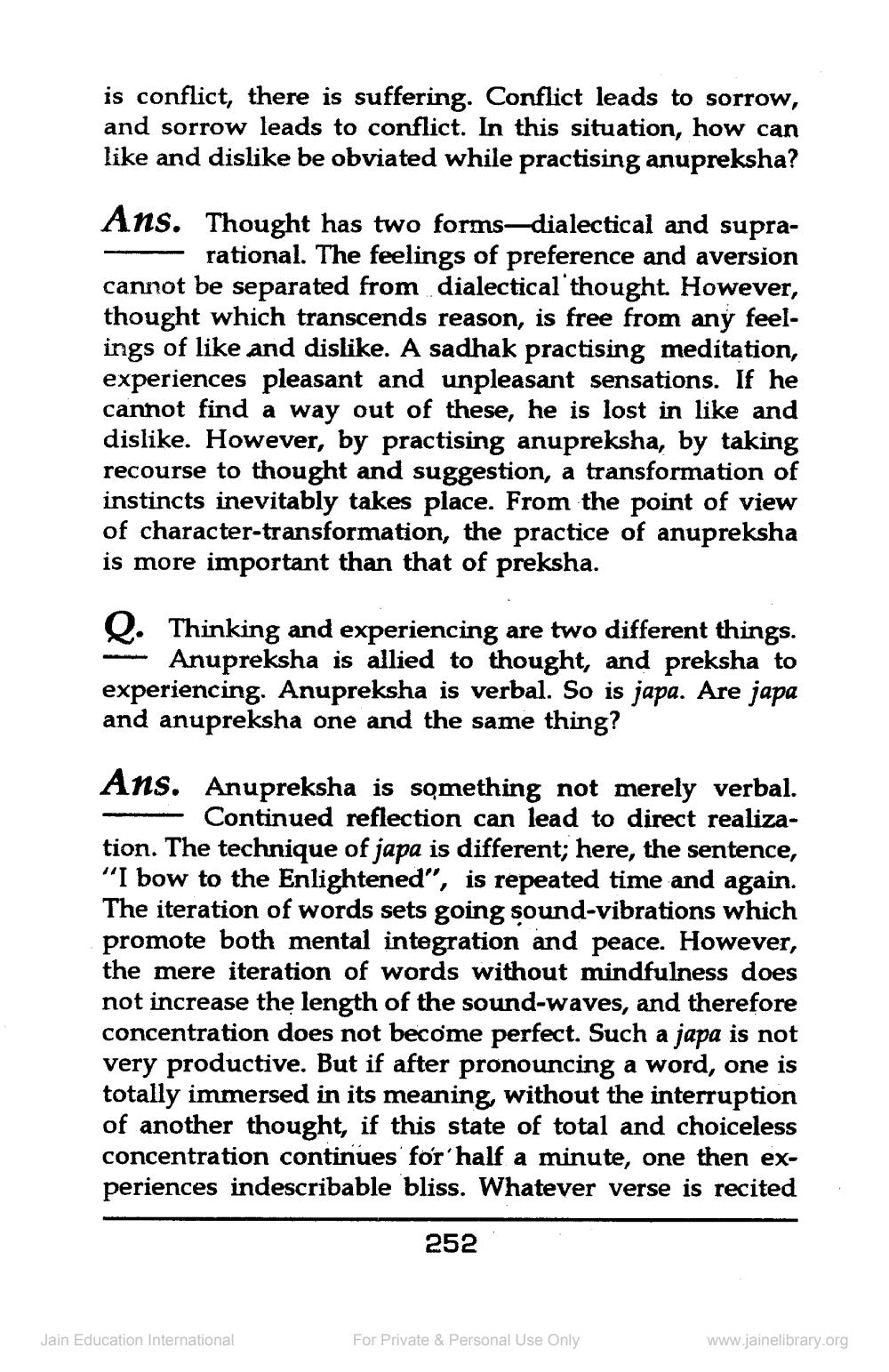________________
is conflict, there is suffering. Conflict leads to sorrow, and sorrow leads to conflict. In this situation, how can like and dislike be obviated while practising anupreksha?
Ans. Thought has two forms—dialectical and supra
rational. The feelings of preference and aversion cannot be separated from dialectical thought. However, thought which transcends reason, is free from any feelings of like and dislike. A sadhak practising meditation, experiences pleasant and unpleasant sensations. If he cannot find a way out of these, he is lost in like and dislike. However, by practising anupreksha, by taking recourse to thought and suggestion, a transformation of instincts inevitably takes place. From the point of view of character-transformation, the practice of anupreksha is more important than that of preksha.
Q. Thinking and experiencing are two different things. - Anupreksha is allied to thought, and preksha to experiencing. Anupreksha is verbal. So is japa. Are japa and anupreksha one and the same thing?
Ans. Anupreksha is something not merely verbal. - Continued reflection can lead to direct realization. The technique of japa is different; here, the sentence, "'I bow to the Enlightened", is repeated time and again. The iteration of words sets going sound-vibrations which promote both mental integration and peace. However, the mere iteration of words without mindfulness does not increase the length of the sound-waves, and therefore concentration does not become perfect. Such a japa is not very productive. But if after pronouncing a word, one is totally immersed in its meaning, without the interruption of another thought, if this state of total and choiceless concentration continues for half a minute, one then experiences indescribable bliss. Whatever verse is recited
252
Jain Education International
For Private & Personal Use Only
www.jainelibrary.org




